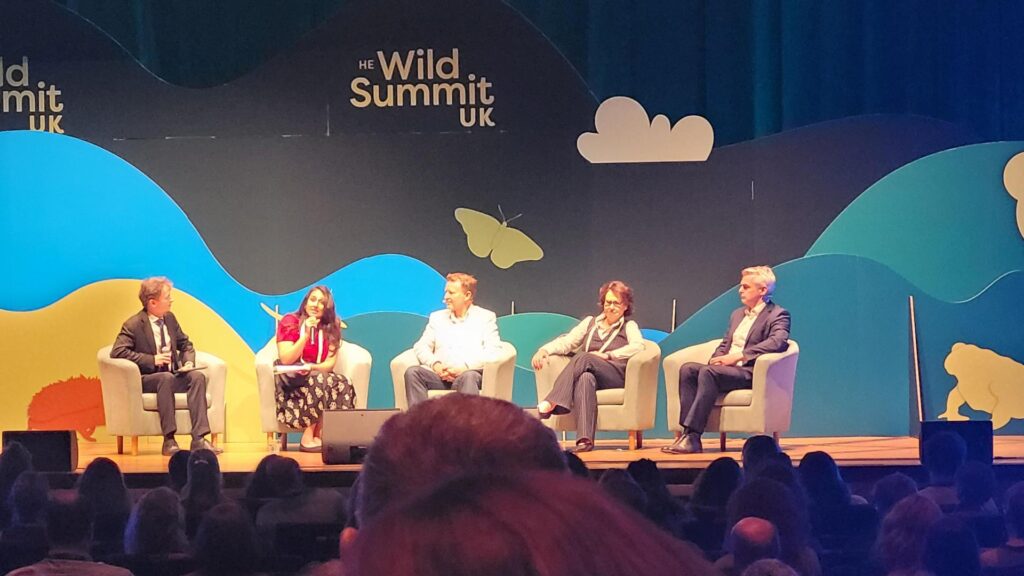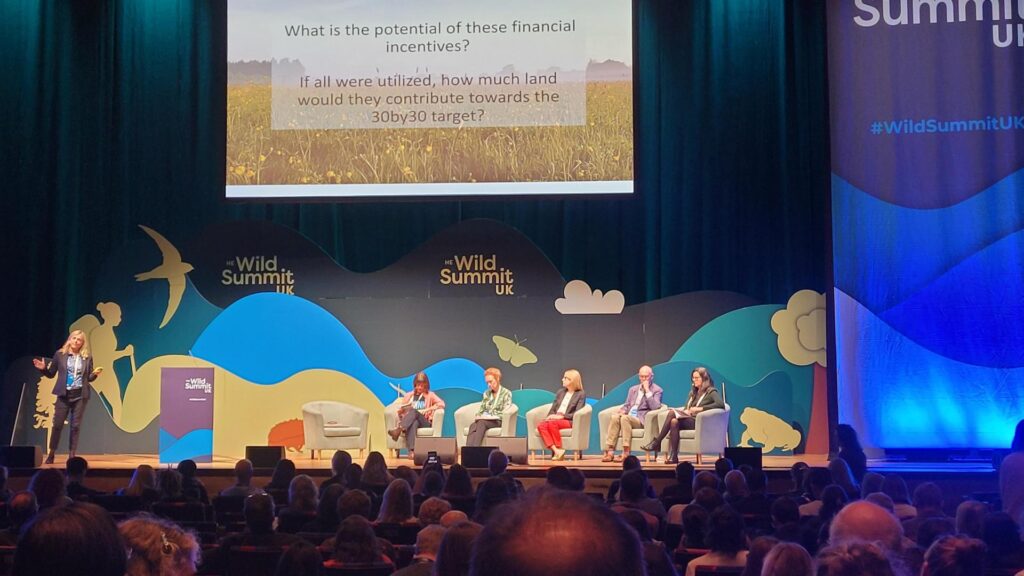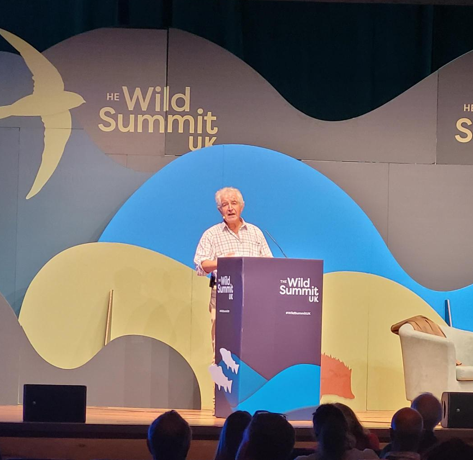
Wild Summit 2025 Reflections
Our CEO Amy Jankiewicz and Campaigns and Media Officer Madeleine Hewitt attended the first Wild Summit in Bristol. With over 1000 people gathered, it provided an insight into pressing discussions happening in the UK environmental movement.
Madeleine reports from the event.
NATURe vs economy
The shadow of Rachel Reeves loomed large over the inaugural Wild Summit conference, with every speaker urging the government to invest in nature recovery.
The government has ambitious targets to meet the commitments made under the Convention on Biological Diversity treaty – to protect 30% of land and 30% of oceans by 2030. Yet so far, their policies have fallen short of expectations.
Mary Creagh, Under-Secretary of State for Nature of the United Kingdom, set the tone for the conference by stressing that protecting nature is vital for economic growth.
Without healthy nature, our communities, our economy can’t thrive.
Mary Creagh, Under-Secretary of State for Nature of the United Kingdom
She spoke optimistically about building an economy that embraces nature, in part by expanding the role of private business in nature recovery.
Yet, as Population Matters explored in our alternative economics project last year, there is a fundamental tension between continued economic growth and environmental sustainability, since growth relies on ever more resource extraction.
There has been wide criticism of the promised idea of ‘green growth’, economic growth that is compatible with environmental sustainability, because of its potential to actually increase material demand.

addressing our consumption
Celebrity chef and environmental activist, Hugh Fearnley-Whittingstall delivered an impactful keynote speech, urging us to protect our rivers. He made a practical case to address the harmful effects of our consumption – starting with the way we eat.
Most of us have become accustomed to eating cheap chicken and having year-round access to all fruits and vegetables without considering the environmental cost of how that food arrives on our tables.
Out of season produce is typically imported from over-seas, increasing its carbon footprint. At the same time, the industrialisation of chicken farming has intensified chemical pollution in our rivers, to the extent that only 14% of the UK’s rivers are now in good ecological health.
For many of us, our distance from the realities of food production leaves us unaware of its devastating impact on nature, polluting rivers and degrading ecosystems.
Short-term convenience has been allowed to outweigh long-term responsibility.
Hugh Fearnley-Whittingstall
The UK is one of the most nature depleted countries in the world. For nature to recover, we need to address our consumption, both through individual choices and government-led policy changes.

Too Good To Be True
As Adam Vaughan, environmental editor of The Times pointed out, “Everyone wants to focus on the win-wins, but there’s no discussion about the trade offs nor the difficult problems.”
Indeed, there was promising discussion of potential solutions such as nature friendly agriculture, reducing land use, and lowering pollution. However, these solutions seem unrealistic when no one acknowledged that the UK’s population is set to keep growing.
According to the latest ONS mid-2024 projections, the UK population will surpass 70 million people by 2030.
That growth will drive higher demand for resources. More people will require more food, more water, more power, more housing. Yet the impacts of our growing population were not widely discussed in relation to how this will affect UK nature recovery efforts.
For some, addressing the impacts of population may seem like a ‘difficult problem’ best left unspoken. But as our strategy makes clear, solutions do exist, and they are overwhelmingly positive, prioritising improving people’s wellbeing and protecting nature.
Let’s Normalise Talking About Population
At the Wild Summit, we focused our advocacy on normalising discussions on population, so it becomes part of the conversation on how to protect and restore the UK’s nature.
We also advocate for the need to address consumption, especially in the UK. Not only is it vital we start talking about these issues, but also that we act.
Individual actions, such as only eating seasonal produce and setting aside non-meat days each week, can have a real impact. But systematic change is just as vital. That’s why Population Matters will continue researching smart policy options to determine how we can effectively reduce consumption in the UK and across the wider Global North.
Our strategy brings these threads together to create a world in which our human population lives fairly and sustainably with nature and each other.
We belong to nature, nature doesn’t belong to us.
Aanchal Mann, Campaigns and Public Affairs Manager, Women Institute



